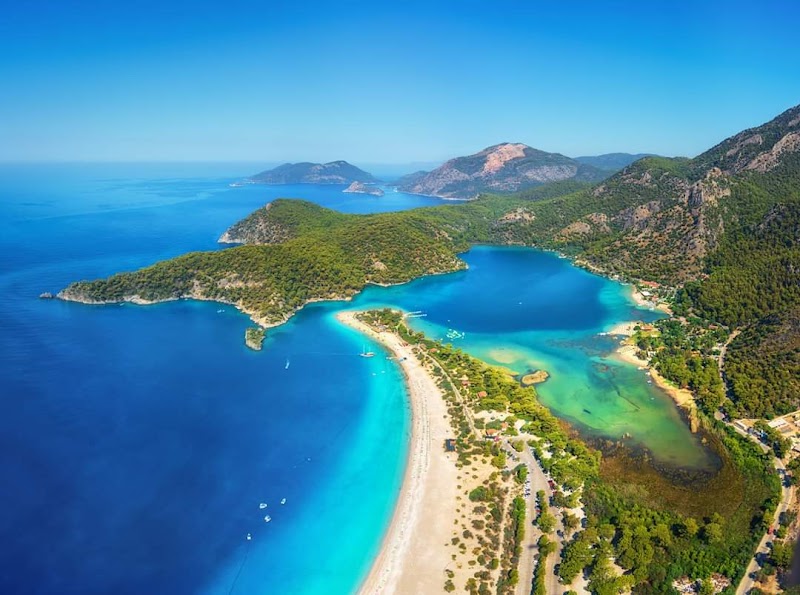
Kwale Cultural Festival: Immerse Yourself in Coast Province’s Vibrant Heritage
Experience the lively rhythms and rich heritage of the Kwale Cultural Festival in Kenya's Coast Province. This event offers a practical yet immersive introduction to Mijikenda traditions, vibrant performances, and coastal crafts, perfect for cultural explorers and outdoor enthusiasts alike.
Choose Breathable Footwear
Wear sturdy, breathable shoes that handle shifting terrain with ease—from sandy patches to soft dirt paths.
Stay Hydrated Throughout the Day
Carry at least two liters of water; coastal humidity and the tropical sun can quickly sap your energy.
Arrive Early for Premier Spots
Getting to the festival grounds early secures good seats and the chance to explore artisan markets before crowds peak.
Prepare for Sun and Humidity
Use sunscreen liberally and wear a hat; the festival offers little shade during midday hours.
Kwale Cultural Festival: Immerse Yourself in Coast Province’s Vibrant Heritage
The Kwale Cultural Festival unfolds annually in the heart of Kwale County, Coast Province, drawing visitors into a vibrant showcase of local traditions, music, dance, and crafts. Set against the rhythmic pulse of the coast, this festival brings together the diverse communities of the region, each fiercely proud of their heritage and ready to share it through lively performances and vividly crafted artworks.
Located just a short journey from the bustling town of Kwale, the festival grounds are a practical stop for anyone eager to combine cultural exploration with outdoor adventures along Kenya’s southern coast. The event spans several days, inviting attendees to engage with Mijikenda customs, experience traditional Swahili dance, and sample authentic coastal cuisine.
Planning your visit around the festival means embracing an environment both culturally rich and physically inviting. The terrain around Kwale facilitates easy movement between stages and craft markets, with unpaved paths weaving through open fields that catch the ocean breeze. Expect warm, humid air filled with the scent of coconut palms and the murmur of distant waves. Comfortable footwear is a must—paths can shift from soft sands to packed earth, and occasional mud patches remind you nature remains a key player.
Timing your visit is crucial: the festival often aligns with the dry season between June and October, when the Coast Province is at its most accessible and the risk of unexpected rainfall is low. Early mornings and late afternoons offer cooler air and the best lighting for photography. As sunlight filters through the tall grasses and nearby trees, colors deepen and shadows sharpen, highlighting the intricate beadwork and vibrant fabrics on display.
Hydration is a constant companion here. The coastal sun presses steady, and while shade trees offer respite, carrying water helps keep you energized through long performances or while browsing artisan stalls. Try to schedule breaks near refreshment stands to sample local refreshments made from fresh tropical fruits.
The festival is not just a passive experience but a dialogue with the community. Performers move with intention, their dances telling stories older than the buildings around them. The drumming calls invite participation, and local vendors appreciate visitors who show genuine interest in the craft and history behind their wares.
For those combining the festival with outdoor activities, nearby nature reserves and beaches provide a refreshing contrast. The nearby Shimba Hills National Reserve offers forest trails and wildlife viewing, just a day trip away. This proximity allows a balanced itinerary—immerse in culture one day, explore natural landscapes the next.
In sum, the Kwale Cultural Festival is more than an event—it’s an active encounter with a community that remains fiercely connected to its roots. It welcomes all who come prepared to listen, learn, and move along with the beat of the Coast Province.
Nearby Trips
All Adventures
Boat Charters
Water Activities
Adventures near Kwale, Coast Province
Discover the unique and memorable adventures that make Kwale, Coast Province special.
Frequently Asked Questions
When does the Kwale Cultural Festival usually take place?
The festival typically occurs annually between June and October, aligning with the dry season for optimal weather conditions.
Are there any lesser-known viewpoints during the festival?
Behind the main festival grounds lies a small elevated ridge where you can get a panoramic view of the stage and surrounding villages, perfect for photography or quiet reflection.
What wildlife might I encounter near the festival area?
While the festival itself is mostly in open fields, nearby forests sometimes reveal vervet monkeys and various coastal bird species such as kingfishers and sunbirds.
Is the festival family-friendly?
Yes, the event welcomes visitors of all ages. Several performances and markets are interactive or designed to engage young attendees with cultural storytelling and crafts.
Are there environmental considerations visitors should keep in mind?
Visitors should respect waste disposal guidelines to help keep the festival site clean and minimize environmental impact, especially since the area is adjacent to ecologically sensitive coastal habitats.
Can I purchase local crafts at the festival?
Absolutely. The festival features several stalls where artisans sell handmade beadwork, carved wood items, fabrics, and traditional musical instruments.
Recommended Gear
Comfortable walking shoes
The festival grounds demand reliable footwear suitable for dry and occasionally soft terrain.
Water bottle
Hydration is critical in the tropical climate to avoid fatigue.
Sunscreen
Protect skin from strong coastal sun exposure throughout the day.
Lightweight hat
Offers shade and comfort during peak sunlight hours.
Local Insights
Hidden Gems
- "The small ridge behind the main event offers a quiet view and sharp photo angles."
- "Nearby mango groves provide a fragrant detour and are home to local birds."
Wildlife
- "Vervet monkeys"
- "Kingfishers"
- "Sunbirds"
History
"The Kwale Cultural Festival highlights the traditions of the Mijikenda peoples, who have inhabited the Coast Province for centuries, preserving unique dances, music, and artisanal crafts."
